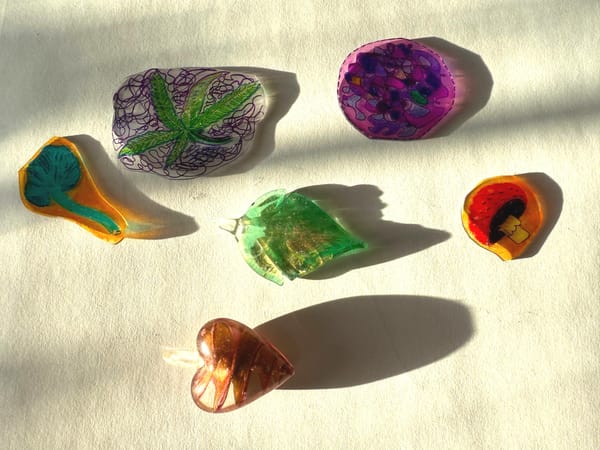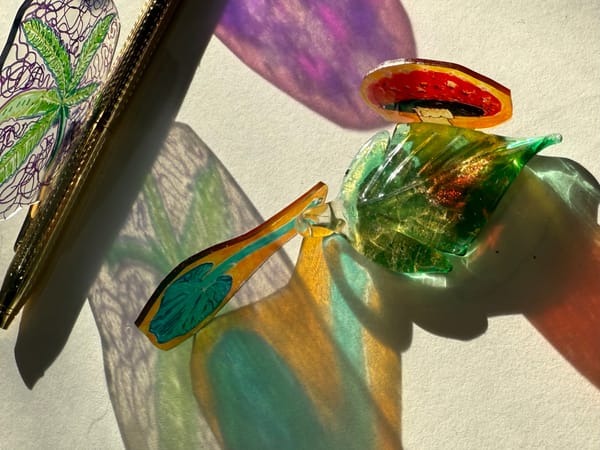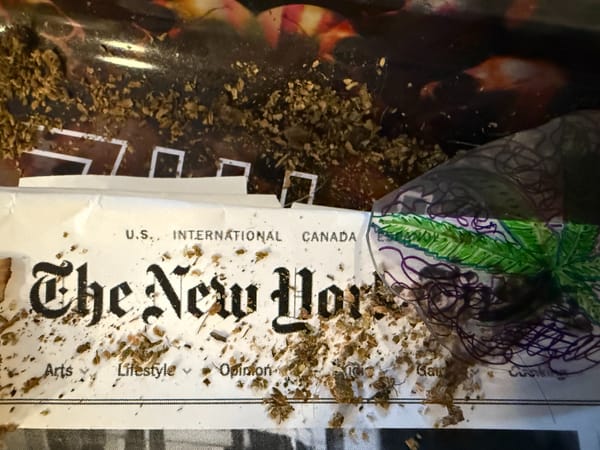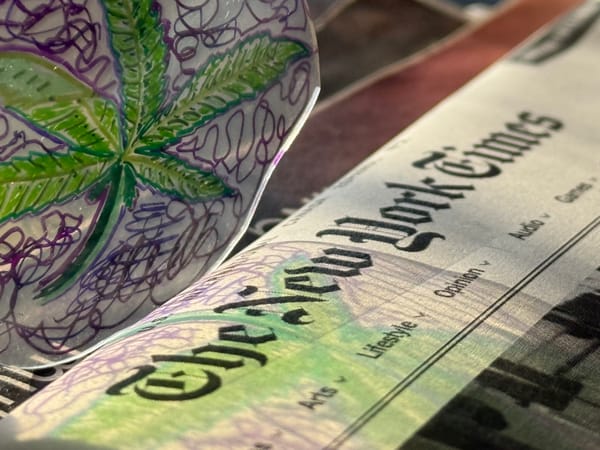Massachusetts could become second state in the US where you can legally grow shrooms
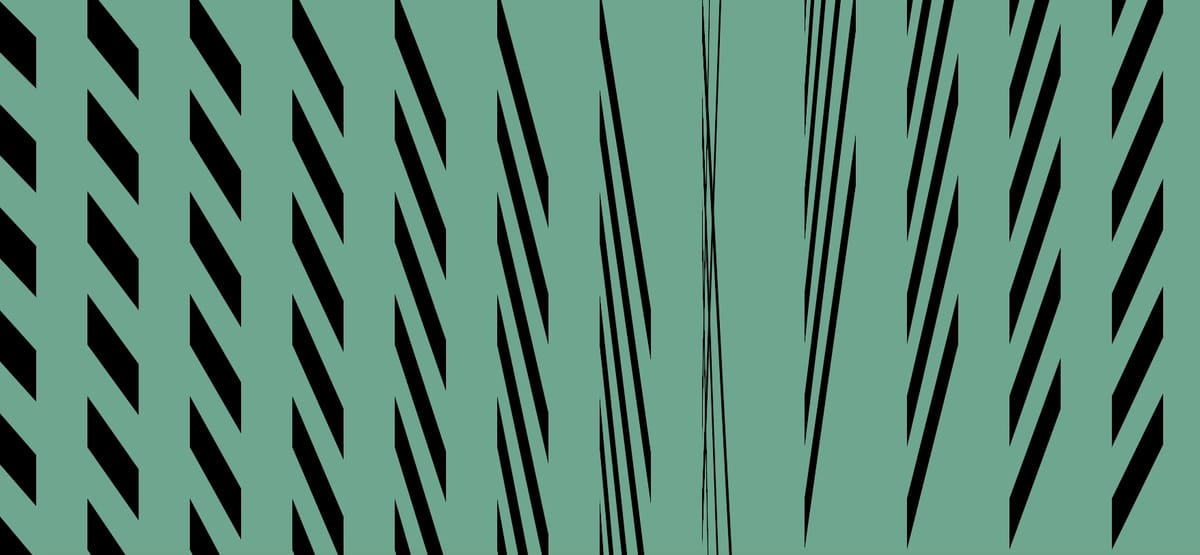
Today, Massachusetts voters are deciding on Question 4, a ballot initiative that would legalize psilocybin mushrooms and other psychedelics. If the initiative passes, Massachusetts will become the third state where psilocybin mushrooms are legal, joining Oregon and Colorado, and will also join Colorado to become the second state where its legal to grow them. Question 4 stipulates that Massachusetts must use a space no larger than 12' x 12' to grow psychedelics.
What else would the Question 4 ballot initiative do?
- Create a 5-person commission to license "psychedelic therapy centers" where patients age 21 and older could engage in supervised therapy sessions. These centers would not open until 2026.
- Legalize personal possession and cultivation of psilocybin as well as four other psychedelic substances: DMT, mescaline, ibogaine and psilocin
- Continue to prohibit the retail of these psychedelics
What are these substances?
- Psilocybin: A component of more than 200 species of fungi. Psilocybin is not psychoactive until it is converted to psilosin n the body.
- Psilocin: Psilocin can be contained in trace amounts alongside psylocybin within "magic mushrooms." Psylocybin also becomes psilocin when its broken down in the body. Psilocin has been found to facilitate psychedelic, spiritual and therapeutic experiences because it disrupts the brain's neural network and allows it to create new connections. Psilocin (converted from psilocybin) has shown promise as a treatment for depression in multiple studies. Common negative side effects include bad trips and nausea.
- Ibogaine: Ibogaine is a psychoactive substance found in a number of plants, including the African rainforest shrub tabernathe iboga, the Amazon rainforest plant tabernaemontana undualta, and the fruit-bearing Central African tree, voacanga africana. Indigenous cultures in West Africa use it in high doses for religious rituals, and in lower doses as a medication for fatigue and hunger. Scientists have investigated ibogaine as a potential treatment for substance dependence, including alcohol use disorder. A 2019 study found that 43% of participants taking the drug as therapy for opioid use disorder had a "completely mystical experience" and that participants experienced "cyclic visions leading to confronting realizations involving remorse and regret for participants’ actions towards others, but also release from feelings of guilt and worthlessness." Negative side effects include ataxia, or loss of muscle control. Studies have found that ibogaine can also be fatal.
- DMT:Dimethyltryptamine is a chemical that occurs naturally in animals and plants, including the ayahuasca plant, which has been used in shamanistic rituals in Peru for thousands of years. DMT has also shown promise as a treatment for depression. Negative side effects include vomiting, agitation, dizziness and seizures.
- Mescaline: Mescaline is found in the peyote plant—which is a small, needle-less cactus, and in the flowering South African cacti genus Echinopsis. Mescaline has also been used in Indigenous psychedelic rituals in North America. A study comparing mescaline, LSD and psilocybin found that mescaline's effects last longer than those of other substances, and that it enhances the circulation of oxytocin in the brain. Negative side effects include nausea and vomiting.
What's it like in other states with legal psilocybin?
- In Oregon, it is still illegal to grow psilocybin. Only licensed providers can provide psilocybin-assisted therapy in Oregon, and it's expensive. Oregon doesn't allow psilocybin products to be sold in stores, and it hasn't legalized the other psychedelics listed above. Even though the legal psilocybin industry is not yet two years old, some licensed psilocybin therapy centers have already shut down due to lack of customers. And while it seems not many Oregonians are taking advantage of access to legal psilocybin, more than a dozen Oregon cities are giving voters the option to ban psilocybin on their ballots today.
- In Colorado, the same five psychedelics on the Massachusetts initiative—psilocybin, psilocin, DMT, ibogaine and mescaline, are legal for personal use. That means you can grow them, possess them, and give them to your 21 + friends if you yourself are 21 + (although you cannot share ibogaine.) But you cannot sell them or buy them. It is, however, legal to sell "harm reduction services" like supervising other people through their psychedelic trips. This stipulation has led to some confusion and potential exploitation of the law, as some have offered their therapeutic psychedelic services for money while claiming the psychedelic substances themselves are just a free added bonus.
What related laws are in the works?
- Legislation has been introduced to form medical task forces that will investigate the health impact of psychedelics in Washington, Minnesota, Indiana, Nevada, Arizona, Texas, Maryland and Connecticut.
- On the National level, the Psychedlic Therapy to Save Lives Act, introduced in 2023 , would require the Department of Defense to award grants for the study of psychedelic treatment for certain members of the Armed Forces.
